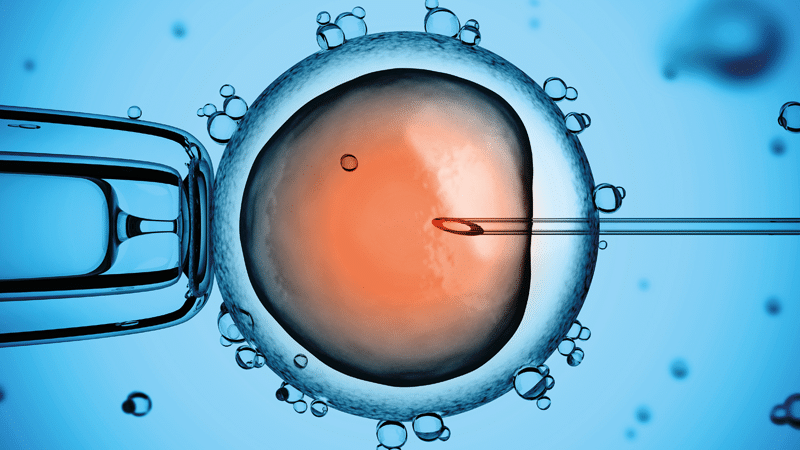A test widely used during in vitro fertilisation (IVF) to ‘screen out’ embryos deemed to have chromosomal conditions could be unreliable, a new study has revealed.
Authors from the University of Cambridge questioned the clinical accuracy of the pre-implantation genetic testing for aneuploidy (PGT-A), which is used to identify conditions such as Down’s syndrome and Patau’s syndrome where children have 47 chromosomes instead of the usual 46.
IVF usually involves removing multiple eggs from a woman’s ovaries which are then fertilised with sperm in a laboratory. One or more fertilised eggs, or embryos, are implanted in the woman’s womb to develop. But unknown numbers — included those deemed to have a chromosomal condition — are frozen, stored and subsequently destroyed.
‘Eugenics’
The authors said their findings — published in Nature last week —”raise questions” about the current testing method, which may not be taking into account the normal stages at which embryos can develop a variable number of chromosomes.
In the US, bioethicist Dr Aaron Kheriaty has warned that genetic tests like PGT-A revive “the dark specter of eugenics: the use of medical technology to eliminate those deemed genetically unfit because of disease, sex, or other ‘undesirable’ traits”.
He explained that although screenings are “described as a ‘treatment’ for genetic diseases, it is important to note that the method does not actually treat an individual affected by a disease. It merely identifies that individual and discards him or her, denying that human being in its earliest stage of development the opportunity for continued existence.”
“In short”, he concluded, “PGT doesn’t treat or heal maladies; it ultimately destroys the affected embryo altogether.”
Abortions
Earlier this year, two couples in the UK revealed that they had abortions after their unborn children were misdiagnosed with illnesses.
Carly Wesson and her partner were told that a chromosomal test showed that their daughter would have Patau’s syndrome, a condition where one in nine babies born alive survive to their first birthday.
Although a second scan was scheduled, they were advised it would simply confirm the original diagnosis. Six weeks later, having gone through with an abortion, doctors informed them that the second scan was clear of the condition.
Another couple said they agreed to an abortion after a consultant said their baby was likely to have a life-limiting condition. A post-mortem examination revealed no evidence of genetic variation.
Eight GM babies born from ‘three-parent IVF’ in UK
CI: ‘Fertility treatment undermining family’
Scientists call for ‘easy access’ to human embryos for experimentation


